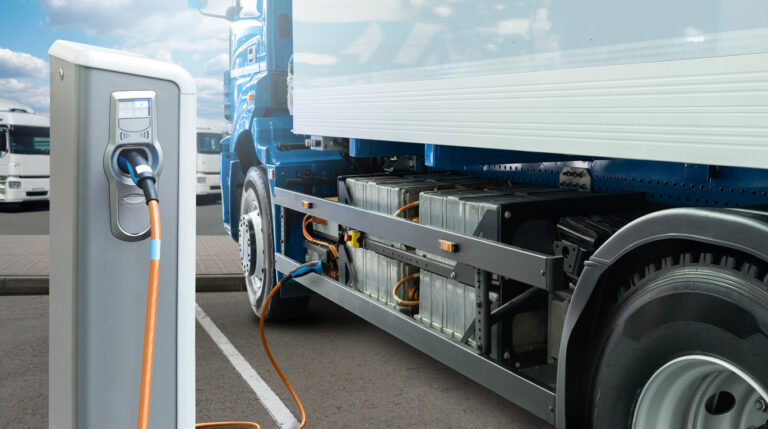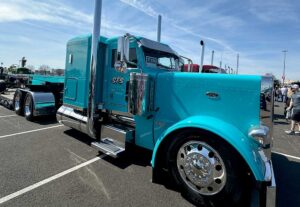WASHINGTON — In his inauguration speech on Jan. 20, President Donald J. Trump emphasized his commitment to rolling back federal regulations related to vehicle emissions, which he referred to as the “electric vehicle mandate.”
“With my actions today, we will end the Green New Deal and we will revoke the electric vehicle mandate, saving our auto industry and keeping my sacred pledge to our great American autoworkers,” Trump said. “In other words, you’ll be able to buy the car of your choice. We will build automobiles in America again at a rate that nobody could have dreamt possible just a few years ago. And thank you to the auto workers of our nation for your inspiring vote of confidence. We did tremendously with their vote.”
The anticipated executive order, set to be signed shortly after his speech, is part of a broader strategy to reshape U.S. energy policy. By easing regulations, the administration aims to encourage traditional vehicle production and potentially reduce the emphasis on electric vehicle development. This decision could have significant implications for the auto industry, impacting manufacturing priorities and the future landscape of vehicle offerings.
Greater Flexibility
According to Trump, his reasoning behind the move would benefit the U.S. auto industry by allowing for greater flexibility in production and potentially saving jobs within the sector. Trump assured consumers that they would have a wider selection of vehicles available to them, suggesting that the rollback would lead to more choices beyond electric vehicles.
In campaigning for the presidency, Trump condemned the federal tax for EV buyers — up to $7,500 per vehicle — as part of a “green new scam” that would devastate the auto industry. His transition team is reportedly working on plans to abolish the tax credits and to roll back the more stringent fuel-economy rules that were pushed through by the Biden administration. It is far from clear, though, that the Trump administration could actually rescind the credits.
Trump’s argument — one that most economists dispute — is that a rapid U.S. shift toward electric vehicles would lead to most EVs being made in China and would swell prices for America’s auto buyers. He has said he would redirect federal revenue recaptured from a canceled tax credit to build roads, bridges and dams.
Direct Contrast to Biden-Harris Administration
On Jan. 13 the U.S. Department of Transportation’s Federal Highway Administration (FHWA) announced $635 million in grants to continue building out electric vehicle (EV) charging and alternative fueling infrastructure with funding from the Bipartisan Infrastructure Law’s signature zero-emission refueling infrastructure programs.
“The Biden Administration has made historic investments to support the EV transition and make sure it’s made in America,” said then U.S. Transportation Secretary Pete Buttigieg. “These investments will help states and communities build out a network of EV chargers in the coming years so that one day, finding a charge on a road trip will be as easy as filling up at a gas station.”
According to a media release, the grants fund 49 projects that will deploy more than 11,500 EV charging ports and hydrogen and natural gas fueling infrastructure along corridors and in communities across 27 States, four Federally Recognized Tribes, and the District of Columbia.
Biden Supported EV Infrastructure
In September, the U.S. Department of Transportation’s Federal Highway Administration (FHWA), along with the Joint Office of Energy and Transportation, announced via media release a Request for Information (RFI) from stakeholders about electric vehicle (EV) charging technologies and infrastructure needs for medium- and heavy-duty vehicles.
“This will inform how the federal government, including the Environmental Protection Agency and other agencies, can support the development and timely build-out of a national EV charging network that balances the needs of rapidly evolving technology and infrastructure investments in freight and a multimodal transportation system. The goal is to collect information on the potential type and need for setting federal standards,” the release stated.
Biden Makes Move in Final Days in Office
In November, the Biden Administration announced that the U.S. Department of Energy would make a loan to Rivian Automotive. The loan would aid building a factory in Georgia that had stalled as the startup struggled to become profitable.
The administration finalized the loan to Rivian just days before Trump’s inauguration.
The $6.57 billion loan will finance an EV plant in Georgia where the company will make SUVs and crossover vehicles. In a press release, the DOE described the vehicles as “mass market” rather than luxury.
The loan will support construction of a nine million square foot facility to manufacture up to 400,000 mass-market electric SUV’s and crossover vehicles with the aim of boosting the regional economy and helping build America’s clean transportation future.
The Associated Press contributed to this article.









I think electic is good depending on the geographical area of the country you live .In the North cause of the cold it hinders it’s relyability.It takes longer for it to charge in the cold.In the south and southwest,cause of the heat,the batteries aren’t being keep at optimum running temperature,hence when they get hot they burn up,just like we’ve all seen.I don’t think they are bad,but, more study needs to be done in order to make them effiecent.The batteries get hot even in charging mode,so once the charge ,they need to cool before being utlized